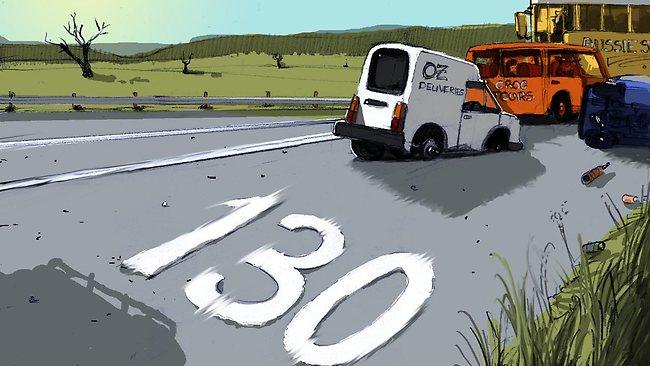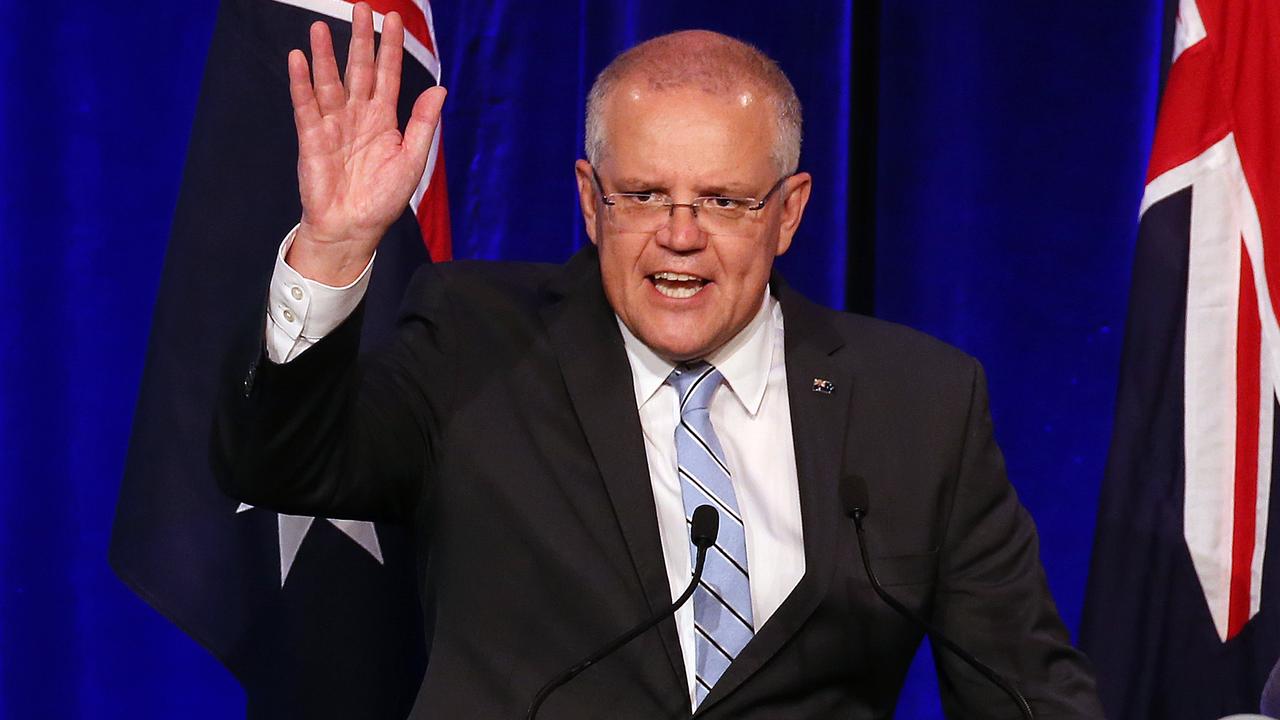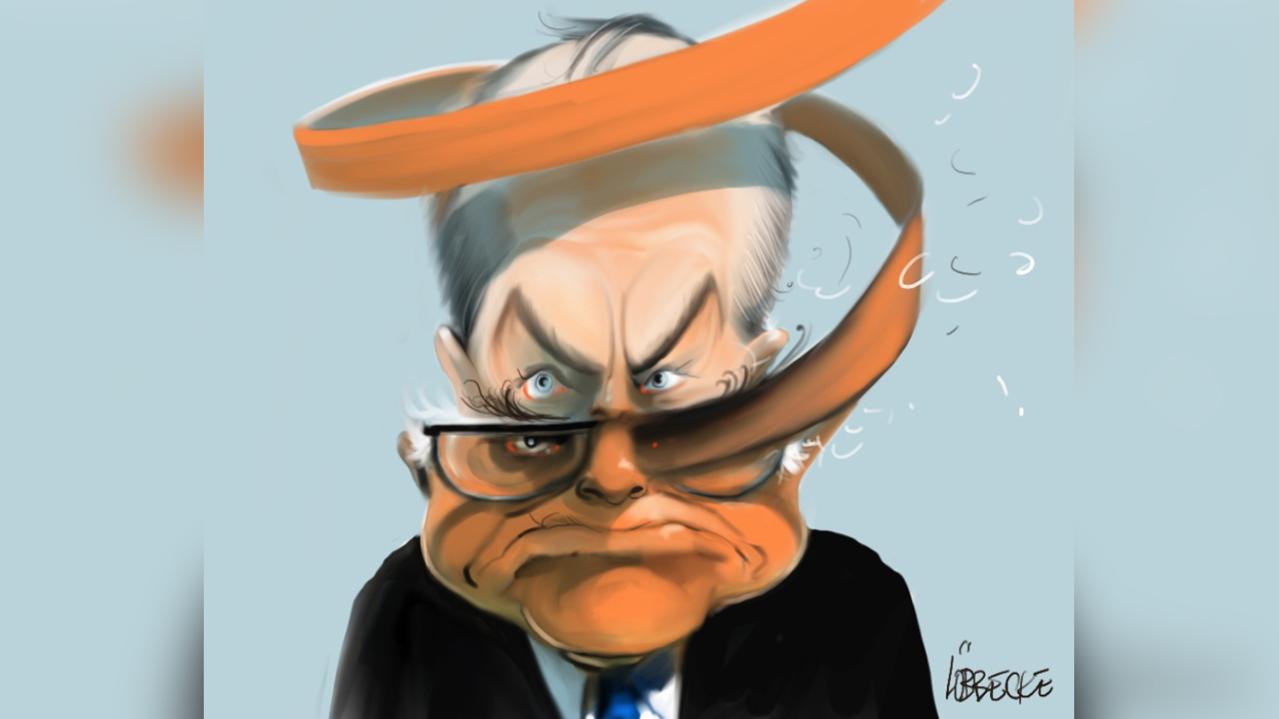Obstacles in fast lane of the multi-speed economy

DISCUSSION surrounding the importance of the mining tax to government revenue streams is a red herring, a distraction from the biggest issue facing policymakers, arising partly out of the commodities boom, partly out of the global economic downturn.
That issue is the high Australian dollar and its impact on the economy. This is Australia's most pressing dilemma: prosperity butting up against industries under pressure, and the challenge of a multi-speed economy.
The notion of the two-speed economy suggests a fast lane and a slow lane. But evidence this week from retailer David Jones and ongoing problems with domestic industries removed from the mining boom makes the slow lane look more like oncoming traffic.
There are many problems with Labor's mining tax, including the concept behind the tax itself. But we should not let the debate distract from how domestic industries, including manufacturing and tourism, are able to cope with a high dollar. The government needs to give serious attention to what, if anything, can be done to put downward pressure on the dollar, albeit while being wary of too much market interference.
Currencies do not trade in a vacuum. Our dollar is trading against currencies such as the US dollar, the euro and the British pound, where their value is being deliberately distorted downwards (by printing money) to stimulate economic growth and inflate state debt away.
The debate over the mining tax is a red herring because even if Treasury is right, it still will reap only between $3 billion to $4bn each year for government coffers. That's in its watered-down form, representing less than 1 per cent of annual government revenue. And the miners say on their figures they expect to pay far less tax anyway. It is hardly the panacea for structural deficits caused by too much spending on middle-class welfare, for example.
If we continue to toss money into domestic industries in a piecemeal fashion because they are struggling with a high dollar (such as the $275 million handout to Holden announced on Thursday), mining tax revenue will quickly evaporate.
The Holden handout was poor public policy if ever I have seen it. What makes Holden worthier than services industries across the land - especially in the tourism sector - which are struggling to attract clientele?
Labor likes to compare the number of Australians employed in the (often unionised) manufacturing sector to the (increasingly deunionised) resources sector. But what about the services industry? It employs more Australians than any other sector and the tourism component is its most important sub-grouping.
How the government can justify propping up an industry with no track record of innovation and no proven edge in a competitive global market is beyond me.
Unfortunately the intense nature of the partisan debate in this country makes it very hard for the main parties to float ideas (especially innovative ones) without being lampooned by their opponents. This is a bipartisan criticism, and with the demise of the Australian Democrats we don't have a centrist third force in Australian politics capable of positing new mainstream ideas either.
In the months to come, politicians and policy leaders on all sides are going to be forced to debate what, if anything, can be done to address the fallout from the high dollar. While it may help keep a lid on petrol prices, and imported flat-screen TVs are cheaper than ever, the consumer upsides to cheaper imports matter little when domestic industries employing most Australians become uncompetitive, costing people their jobs. A cheaper holiday to Europe is relevant only when you still have a job.
Perhaps the two easiest ways downward pressure can be put on the dollar are for governments to borrow less and interest rates to be lowered. Both make the dollar more expensive when countries such as the US and Britain are printing money to stimulate their economies, free of the fear that doing so will jack up rates.
Government borrowing less is something the opposition has long been calling for, such as winding up the still ongoing stimulus spending from the global financial crisis.
A government borrowing $100m a day is distorting the price of the Australian dollar. It is already a disproportionately traded currency (the fifth most traded in the world) courtesy of our resources sector, meaning that in currency terms it gets treated like a proxy for commodities trading. With the boom expected to last for the foreseeable future, the dollar is set to remain high unless steps are taken to keep it down.
Lowering interest rates is a decision for the Reserve Bank of Australia. It is worried that dropping rates would put too much pressure on inflation. But West Australian Treasurer Christian Porter, for one, thinks the time has come for the RBA to act, despite the booming sectors in his home state and in Queensland. He told me higher interest rates in this country were attracting too much overseas capital looking for a good return, thus pushing the dollar north.
The Australian economy is not built for a currency trading at between $US1.05 and $US1.10. And large chunks of the economy right now are not able to operate profitably with interest costs of 7 per cent to 12 per cent. If you believe in the free market, the myriad more off-beat ideas to take the heat out of the dollar may seem more than a little unappealing; for example, removing the float altogether, capping the dollar, using superannuation incentives to push investments abroad, printing money or the Reserve Bank buying up overseas currencies. Many of these possible mechanisms for halting the dollar's climb create their own unintended consequences, such as pushing up inflation, regulatory complications and regressive micro-economic policy, just for starters.
Manipulating the currency market is complicated and requires serious thought before doing so. Nevertheless, the time is upon us to think outside the square about our high dollar, and lift the importance of the debate about what, if anything, can be done ahead of the high-profile partisan fights we see now over the mining tax and the carbon tax.
This truly is the great debate our nation has to have.


